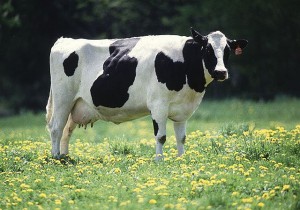New Zealand scientists are among an international group of researchers who have sequenced the cow genome in its entirety and compared its traits with those of other mammals.
 The publication of new research in the journal Science this week marks a significant milestone in animal genetics. Scientists believe the knowledge obtained from this project could lead to improvements in milk and meat production and help find cures for human diseases.
The publication of new research in the journal Science this week marks a significant milestone in animal genetics. Scientists believe the knowledge obtained from this project could lead to improvements in milk and meat production and help find cures for human diseases.
Among the discoveries outlined in Science, researchers reveal that the cattle genome contains a minimum of 22,000 genes, 14,345 of which have counterparts in seven other mammalian species.
The work on the cattle genome is the culmination of two long-running projects – the Bovine Genome Sequencing and Analysis Consortium which undertook the genome sequencing and the Bovine HapMap Consortium, which has been looking at the evolution and domestication of cows through history.
A consortium of Agresearch, Dairy InSight and Agritech Investments, invested US$1 million in the US$53 million bovine genome project which began in 2003.
While the bovine genome was largely mapped by late 2006, comparison of it to the genes of other mammals has become the focus as scientists seek new information on mammalian genetic evolution and differences.
In an SMC Briefing, Agresearch scientists involved in the projects Dr John McEwan and Dr Tom Wheeler, give an overview of the latest research findings and explain their implications for New Zealand agriculture.
PART I
[audio:https://www.sciencemediacentre.co.nz/wp-content/upload/2009/04/audio-bovine-genome-part-1.mp3]PART 2
[audio:https://www.sciencemediacentre.co.nz/wp-content/upload/2009/04/audio-bovine-genome-part-2.mp3]